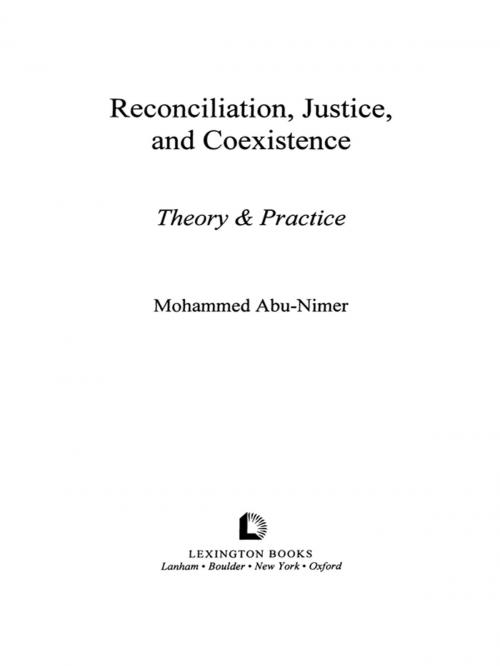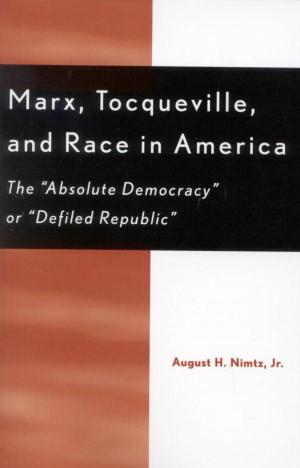Reconciliation, Justice, and Coexistence
Theory and Practice
Nonfiction, Social & Cultural Studies, Political Science, International, International Relations| Author: | ISBN: | 9780739160046 | |
| Publisher: | Lexington Books | Publication: | May 23, 2001 |
| Imprint: | Lexington Books | Language: | English |
| Author: | |
| ISBN: | 9780739160046 |
| Publisher: | Lexington Books |
| Publication: | May 23, 2001 |
| Imprint: | Lexington Books |
| Language: | English |
Since the end of the Cold War several political agreements have been signed in attempts to resolve longstanding conflicts in such volatile regions as Northern Ireland, Israel-Palestine, South Africa, and Rwanda. This is the first comprehensive volume that examines reconciliation, justice, and coexistence in the post-settlement context from the levels of both theory and practice. Mohammed Abu-Nimer has brought together scholars and practitioners who discuss questions such as: Do truth commissions work? What are the necessary conditions for reconciliation? Can political agreements bring reconciliation? How can indigenous approaches be utilized in the process of reconciliation? In addition to enhancing the developing field of peacebuilding by engaging new research questions, this book will give lessons and insights to policy makers and anyone interested in post-settlement issues.
Since the end of the Cold War several political agreements have been signed in attempts to resolve longstanding conflicts in such volatile regions as Northern Ireland, Israel-Palestine, South Africa, and Rwanda. This is the first comprehensive volume that examines reconciliation, justice, and coexistence in the post-settlement context from the levels of both theory and practice. Mohammed Abu-Nimer has brought together scholars and practitioners who discuss questions such as: Do truth commissions work? What are the necessary conditions for reconciliation? Can political agreements bring reconciliation? How can indigenous approaches be utilized in the process of reconciliation? In addition to enhancing the developing field of peacebuilding by engaging new research questions, this book will give lessons and insights to policy makers and anyone interested in post-settlement issues.















